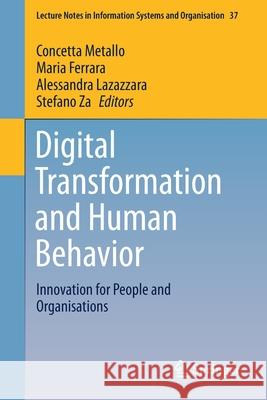Digital Transformation and Human Behavior: Innovation for People and Organisations » książka
topmenu
Digital Transformation and Human Behavior: Innovation for People and Organisations
ISBN-13: 9783030475383 / Angielski / Miękka / 2020 / 370 str.
Kategorie:
Kategorie BISAC:
Wydawca:
Springer
Seria wydawnicza:
Język:
Angielski
ISBN-13:
9783030475383
Rok wydania:
2020
Wydanie:
2021
Numer serii:
000456444
Ilość stron:
370
Waga:
0.53 kg
Wymiary:
23.39 x 15.6 x 2.01
Oprawa:
Miękka
Wolumenów:
01
Dodatkowe informacje:
Wydanie ilustrowane











